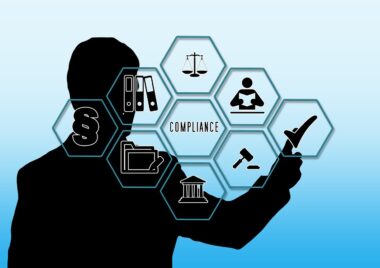Legal Guidelines for Archiving Social Media Communications
In the digital age, social media serves as a significant communication tool for organizations. Compliance with laws regarding social media communications is crucial to avoid legal pitfalls. First, organizations must understand relevant laws governing the archiving of social media, which may vary by jurisdiction. Regulations like the Sarbanes-Oxley Act and others can require businesses to maintain records for specific periods. Managers and staff should be trained to ensure all communications are documented correctly. Failure to comply with these legal frameworks can lead to serious repercussions, including fines. Correct archiving involves capturing, storing, and retrieving social media communications effectively. Additionally, organizations should utilize tools that can assist with compliance frameworks. Keeping track of posts, comments, and direct messages provides accountability and transparency. It’s also essential to have a social media policy outlining responsibilities and procedures. This empowers staff to act within legal boundaries while using social platforms, ensuring a seamless workflow. Regular audits and training sessions can further enhance compliance levels and should not be overlooked.
Organizational policies must include clear definitions. For archiving purposes, clarify what constitutes social media communications. This includes posts, interactions, and even private messages. Next, ensure that the policy outlines the technical methods used for archiving. Employees should be informed about which platforms are monitored and archived. Companies often use third-party services or software compliant with legal standards. This technology captures content accurately without compromising user privacy. Establish a transparent communication strategy, especially when notifying employees about monitoring. Legal guidelines must align with privacy laws; therefore, it is crucial to consult legal experts. Additionally, there are ethical considerations tied to archiving communications for internal investigations. To maintain any social media archiving policy’s validity, businesses must conduct regular reviews. Updating the policy ensures relevance as laws and technologies evolve over time. Keeping abreast with changes is part of best practices for managing social media communications. Document any modifications and communicate these changes to relevant staff. By following these steps, organizations can create a framework that not only safeguards against legal issues but also promotes a healthy communication culture.
Transparency and User Communication
Transparency is an integral component of any social media archiving strategy. All stakeholders, including users and employees, must be made aware of the archiving process. This promotes trust in the organizations’ social media policies. Regular updates can be provided through company newsletters or intranet postings. Companies must also consider engaging with users to explain data practices. This gives users insight into why certain information is archived, helping reduce any unease. Furthermore, companies may find it beneficial to have a FAQ section addressing common concerns. It can include explanations about retention policies and relevance towards compliance with laws. Transparency also extends to describing how archived data will be utilized. Employees should understand how their interactions are monitored or might be reviewed, promoting accountability. This knowledge encourages responsible usage of social media channels, possibly influencing better content creation. Transparency not only boosts user engagement but fortifies organizational credibility as well. Periodically conducting feedback sessions with employees can also determine if the transparency levels meet expectations. By implementing clear communication channels related to archiving, businesses can effectively navigate the complex compliance landscape.
For organizations dealing with sensitive data, additional security measures must be in place. This ensures that archived information is managed correctly. Implement data protection policies that outline security protocols related to archived social media content. Encryption techniques should be applied to safeguard information from unauthorized access. Furthermore, establish limited access to archived records. Limiting who can view or manipulate this data reduces risks and ensures accountability. Regular audits can help monitor compliance with both internal and legal standards. Implementing a tiered access system based on roles can enhance security levels, identifying who has clearance for specific data types. Training sessions focused on data security should be mandatory for all employees. These sessions help in recognizing potential threats and following best practices for safeguarding archived data. Working closely with IT teams can enhance security measures. Furthermore, conducting risk assessments periodically is necessary to identify vulnerabilities in the archiving process. Ensure that incident response protocols are established in the case of data breaches or mismanagement. Organizations should also take into consideration any legislative updates relating to data protection.
Retention Schedules and Compliance
Establishing retention schedules is a key element in the archiving management strategy for social media. These schedules outline how long each type of social media communication should be kept. Organizations must identify the legal requirements associated with different types of content. This involves understanding the nuances of both state and federal regulations, as some may have specific retention timelines. Organizations should also consult with their legal teams to ensure compliance with applicable laws. The retention schedule should be transparent and easy for employees to reference. Furthermore, this schedule should be regularly reviewed and updated to reflect any changes in regulations or business needs. Establish clear procedures for disposing of archived content once it no longer meets legal or business needs. Failure to properly dispose of unnecessary data can lead to compliance issues, and potential legal ramifications. It is beneficial to include this information in the company’s social media policy. By maintaining a clear retention schedule, organizations ensure they remain compliant. This also mitigates risks associated with improperly archived communications which can complicate legal challenges.
Regular training and updates are vital aspects of maintaining compliance within social media archiving policies. Ongoing education should aim to keep employees informed about relevant laws and regulations. Organizations must hold training sessions focused on best practices surrounding archiving social media communications. Engaging employees in these discussions creates a stronger culture of compliance and accountability. It is essential to reiterate the consequences of failing to adhere to regulations regarding archival practices. Further, these sessions should explain how updates to policies or laws might affect their day-to-day operations. Consider incorporating scenario-based training that allows employees to learn through real-life situations. This practical approach can help solidify the importance of compliance. Additionally, maintaining an open dialogue among all staff can help identify gaps in the archiving process. Regular staff surveys can assess the culture surrounding compliance. Listening to employee feedback provides insights that could prove valuable to policy adjustments. Therefore, frequent training will help foster a knowledgeable workforce regarding social media communications. This not only aligns with compliance goals but also supports the overall organizational culture.
Final Thoughts and Future Considerations
In concluding this discussion on legal guidelines for archiving social media communications, it is essential to focus on continuous improvement. Social media compliance is an ever-evolving area, influenced by technological advancements and changes in regulations. Organizations need to remain proactive by monitoring trends and adjusting policies accordingly. Additionally, embracing new methods or technologies for archiving social media communications will enhance compliance measures. Working with industry experts can provide insights and enable a seamless transition in any processes. Establishing coherence between legal requirements and the organization’s vision will ensure robust communication frameworks. Keeping a pulse on user sentiments can also be beneficial. Understanding stakeholder expectations can drive the development of policies that resonate with both employee and user needs. Future considerations should include incorporating sophisticated tools for data analytics. These tools help organizations to manage and retrieve archived communications dynamically. Moreover, integrating social listening strategies can provide even deeper insights regarding public sentiment. Ultimately, prioritizing compliance strengthens an organization’s position within its industry while cultivating a responsible social media culture that benefits everyone.
To sum up, institutions must advocate for meticulously defined practices in archiving communications. This includes comprehensive regulations, appropriate technologies, solid training, and transparent communication strategies. By integrating these components, organizations not only achieve compliance but also empower their employees and users while preserving a high level of trust. The foundation of effective archiving lies in well-documented, easily accessible guidelines. Such strategies contribute to an organization’s integrity and can significantly enhance its reputation as a responsible user of social media. Therefore, investing time, effort, and resources into developing a robust social media policy is essential, particularly for organizations handling sensitive or potentially damaging content. Such foresight helps safeguard against various risks while reinforcing an organization’s commitment to adhering to best practices and legal obligations. When established systematically, these practices will undoubtedly yield dividends in terms of both legal compliance and organizational culture. Thus, adhering to the outlined legal guidelines ensures that organizations not only navigate audits or inquiries successfully but also leverage social media positively for internal and external engagement. A proactive approach combined with a commitment to continuous improvement serves as the bedrock for successful social media communication management.








